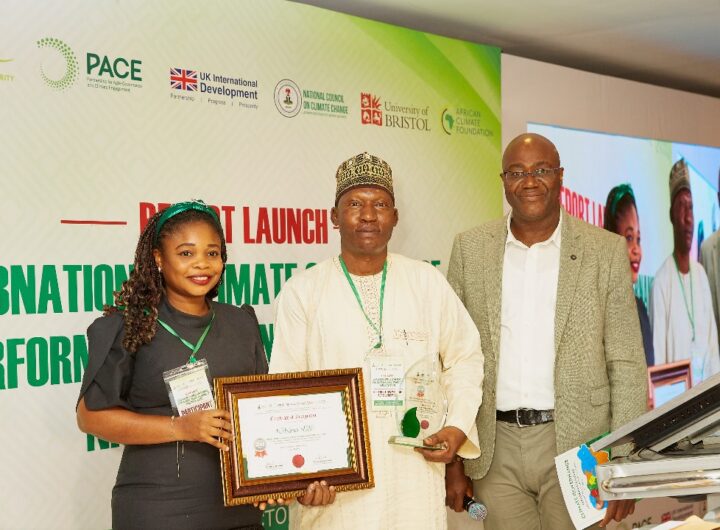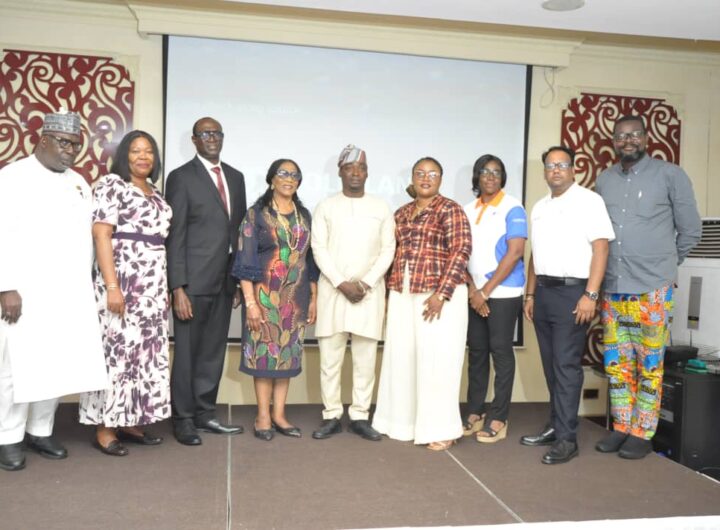
Building Climate Resilience: Why Nigeria Must Strengthen and Enforce Its Building Code Now
By Miss Ifeoma Adelusi, Society for Planet and Prosperity
Nigeria faces escalating climate risks as global temperatures rise. Strengthening and enforcing national building codes is essential to protect communities, reduce vulnerabilities, and support safer, climate-resilient development across expanding cities.
Nigeria’s construction sector contributes significantly to emissions and vulnerability. Substandard buildings, rapid urbanisation and informal construction practices expose millions to flooding, heat stress and structural hazards worsened by climate change.
.Despite policies like the National Building Code and Climate Change Act, enforcement remains weak, undermining commitments and enabling unsafe, carbon-intensive construction practices to spread unchecked across vulnerable communities nationwide today.
Frequent flooding exposes regulatory weaknesses. The 2012 floods displaced millions and caused huge losses, while recent events keep destroying homes, disrupting livelihoods and revealing the fragility of Nigeria’s built environment.
Lengthy, complex permitting fuels corruption and informal construction. Approval processes often involve many steps and delays, encouraging developers to bypass regulations, increasing risks and weakening public trust in regulatory institutions.
Nigeria’s rapid urbanisation intensifies these challenges. Growing cities expand into vulnerable areas, worsening exposure to floods, erosion and heat, especially where building standards are ignored or weakly enforced across communities.
Stronger, climate-smart building codes must address energy efficiency, water conservation, heat mitigation and flood resilience, reflecting Nigeria’s diverse climatic zones and specific vulnerabilities across different states and regions.
Inclusive standards are essential. Buildings must protect vulnerable populations, including persons with disabilities, older people, children and low-income residents disproportionately affected by unsafe construction and extreme weather events.
Kenya’s updated building code demonstrates successful reform by mandating rainwater harvesting, energy efficiency and heat mitigation, while India’s tiered system offers cost-sensitive pathways for sustainable building compliance nationwide.
These examples show climate resilience becomes achievable when standards are clear, legally enforced and supported by incentives encouraging developers to exceed minimum requirements for safer, sustainable construction.
Nigeria must streamline permitting processes to reduce corruption drivers. Transparent digital platforms, simplified procedures and reduced bureaucratic bottlenecks will improve compliance and strengthen institutional accountability across all levels.
Enforcement agencies require improved training, professional oversight and adequate resources. Coordination among federal, state and local authorities must be strengthened to ensure consistent application of national building standards.
Introducing market incentives can accelerate adoption. Green certification schemes, concessional financing and fast-tracked approvals will encourage developers to prioritise sustainability while maintaining affordability for communities.
With millions of housing units still required, Nigeria has a transformational opportunity. Every new building constructed today represents a potential climate-resilient asset that can withstand growing environmental pressures.
Failing to act will increase future costs and deepen vulnerabilities. Strengthening and enforcing building codes now ensures safer cities, protects lives and secures long-term national resilience in a changing climate.



 Sustaining the Lead in Climate Governance Ranking 2025 is a Collective Triumph for all Lagosians
Sustaining the Lead in Climate Governance Ranking 2025 is a Collective Triumph for all Lagosians  One Dead, 8 Rescued as Three- Storey Building Collapses in Ajegunle
One Dead, 8 Rescued as Three- Storey Building Collapses in Ajegunle  COP30: SPP Convenes African Climate Stakeholders to Chart Path for Ambitious NDCs Implementation
COP30: SPP Convenes African Climate Stakeholders to Chart Path for Ambitious NDCs Implementation  Katsina’s Green Growth Agenda Earns Second Place in 2025 Subnational Climate Governance Ranking
Katsina’s Green Growth Agenda Earns Second Place in 2025 Subnational Climate Governance Ranking  Nigeria Environment Outlook 2025: Stakeholders Chart Path for a Greener, More Resilient Future
Nigeria Environment Outlook 2025: Stakeholders Chart Path for a Greener, More Resilient Future  Life of the Bajau: The Ocean Nomads
Life of the Bajau: The Ocean Nomads  Sowore Alleges Nnamdi Kanu Has Been Secretly Transferred to Sokoto Prison
Sowore Alleges Nnamdi Kanu Has Been Secretly Transferred to Sokoto Prison  PM Modi Arrives in South Africa for Historic G20 Summit on African Soil
PM Modi Arrives in South Africa for Historic G20 Summit on African Soil  Police, Military Launch Major Search After Students Kidnapped in Niger State
Police, Military Launch Major Search After Students Kidnapped in Niger State  Women for Change Shutdown Demands Action on South Africa’s GBV Crisis
Women for Change Shutdown Demands Action on South Africa’s GBV Crisis